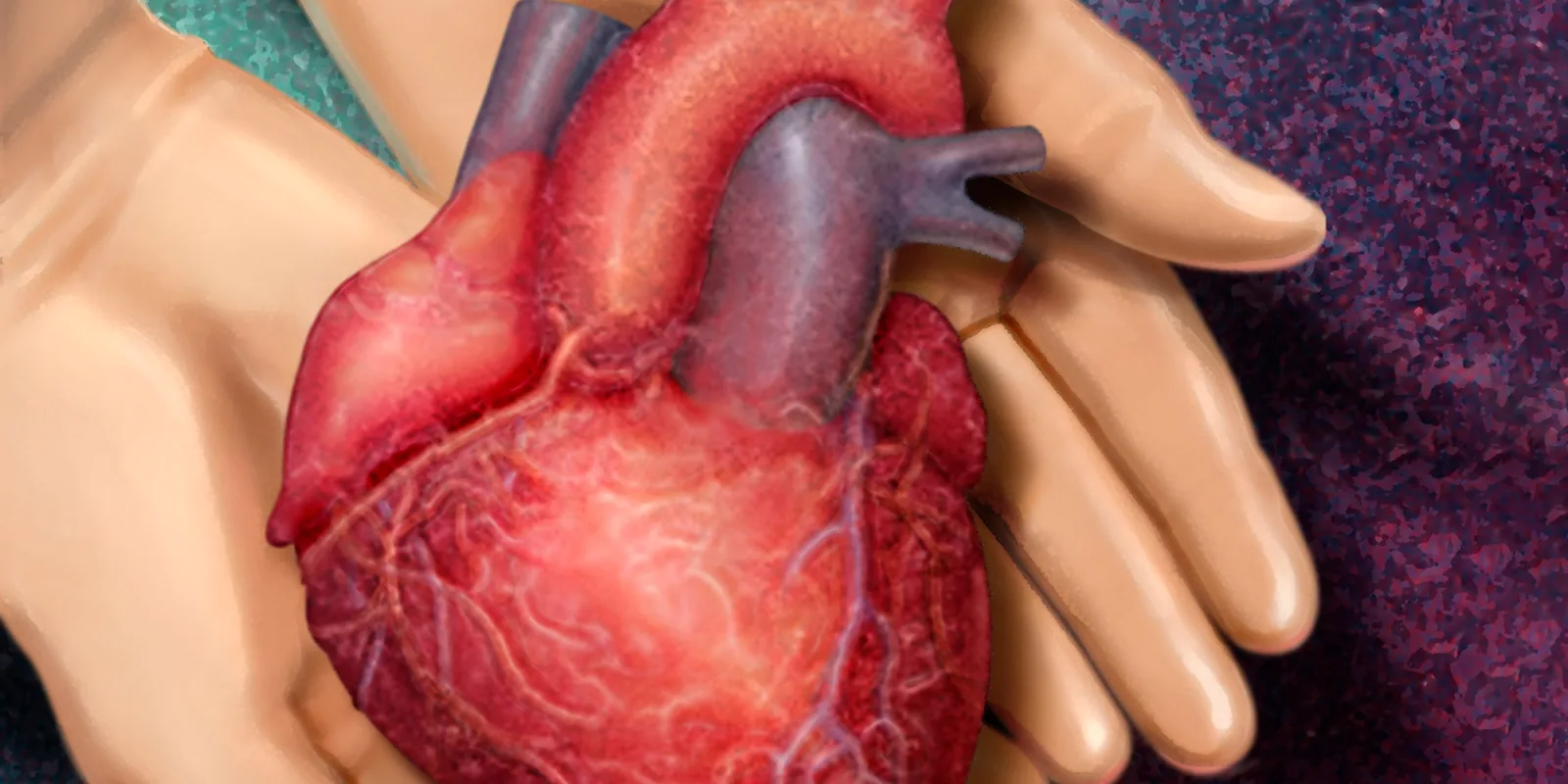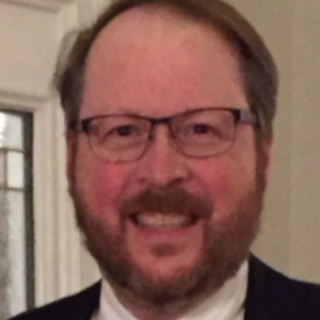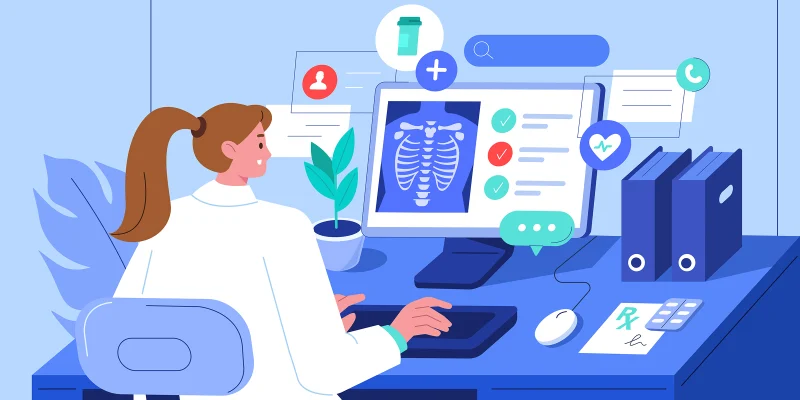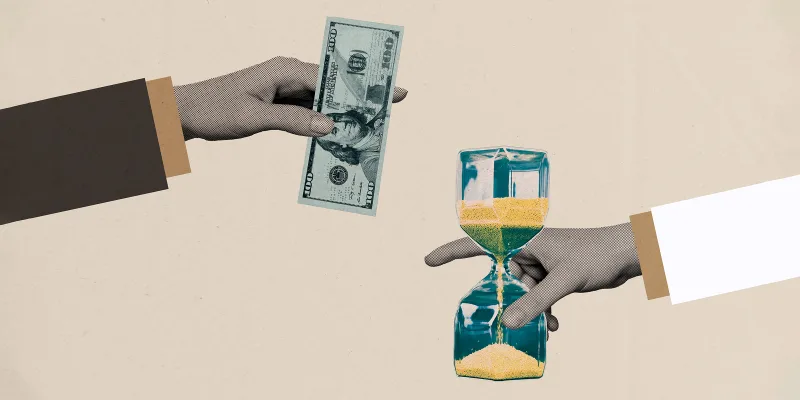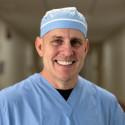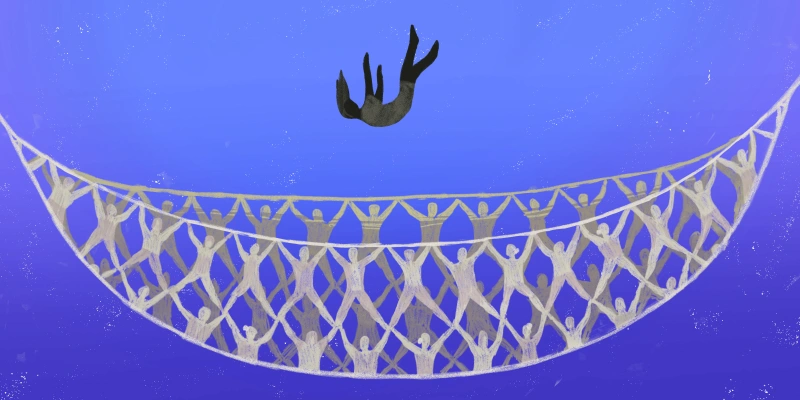
This is part of the Medical Humanities Series on Op-Med, which showcases creative work by our members. Do you have a poem, short story, creative nonfiction or visual art piece related to medicine that you’d like to share with the community? Send it to us here.
I made my way up to the sixth floor cardiac intensive care unit to get consent for a heart transplant from the patient, Montgomery Road Baptist Church Deacon, Alvin Jones. He had been patiently awaiting his new lease on life. He was a big man, barrel chested, and a full-throated baritone in the church choir. He had lived a hard stressful life, served his country where they gave out cigarettes in his k-rations, and developed diabetes from a lifetime of soulful eating. His heart had failed him and he had spent the past three months in the cardiac unit on intravenous medications, oxygen and bed rest all to keep his heart from completely giving up the ghost. He was about a week away from needing a mechanical balloon assist pump to keep the blood circulating, augmenting his failing heart.
I found his room number from the clerk and went in to introduce myself and get some information from him. His room, rather than sterile and unadorned, had been transformed into something like a dorm room. There were rugs on the floor and posters wishing Godspeed and Get Well and signed by countless members of the choir, deacon’s assembly, pastors and parishioners. He had fans to keep him cool and quilts to keep him warm and a Bible and crossword puzzles scattered about the room.
I spoke with him for a few moments about his medical and surgical history, allergies and the like and then did a quick physical exam for the record. I got most of his complicated history from the cardiologists’ notes in the chart. Finally I consented him for the need for blood products during the operation and for the operation itself. I hated being the sobering voice of reality, reviewing the possible complications of a heart transplant, cataloguing pneumonia, stroke, rejection, heart failure, blood clots, infection, and death as possibilities to someone about to celebrate his joyous rebirthday.
The heart came with the transplant coordinator in a red and white cooler that was wheeled into the operating room just about an hour after Mr. Jones was wheeled in. I was there to escort Mr. Jones from the ICU to the OR. He sang down the hallway, “I believe I can fly, I believe I can touch the sky, I think about it every night and day, Spread my wings and fly away…” the walls of the narrow corridor reverberating with his soulful aria. I think it helped calm his jangled nerves, because he didn’t stop humming it until they put him to sleep for the operation.
The surgeon, Fallon, was preparing to get into the chest of Mr. Jones who was intubated, asleep and thoroughly IV’ed. He had an IV line that went all the way into his failing heart and out again so they anesthesiologists could measure blood pressure and filling pressures in four or five different places in and around his failing heart. They couldn’t cross the proverbial Rubicon however until they had the new heart in their hot little hands and had checked it out to make sure it was ok. They couldn’t wait too long either; the heart doesn’t do well if it’s on ice for any considerable length of time.
The coordinator finally arrived with the organ and Fallon and Tom, who had escorted Mr. Jones along with me and the anesthesiology resident to the OR, pounced on it once it was unwrapped from its icy polypropylene canopic cooler. Fallon declared it was a good heart, and it was unceremoniously dunked back into a slushy ice bucket on the back table. And then the surgery began.
Fallon popped open the sternum enough to get the mechanical rib spreader in place and slowly began to free up the heart and great vessels that crisscrossed the operative field. He and Tom would work a little then crank the jaws open a little on the rib spreader, then repeat until they could see and open the leathery covering of the heart.
Mr. Jones’ heart, once exposed, was as big as a sixth inning Chicago slow pitch softball. The failing heart enlarges like a football player once his playing days are over; the weakening muscles elongate, a water balloon with too much pressure applied. But it was still remarkably strong. It banged away inside the confines of the chest cavity with surprising turgor, slapping aside the sucker I was wielding, with relative ease.
In order to take his old heart out, they had to put him on pump. The perfusionist had been called in and had primed his Rube Goldbergesque machine with donated blood to match Mr. Jones, in preparation for taking over the important task of oxygen delivery and carbon dioxide removal while his heart was removed and discarded like so much fat from a butcher’s table. They whittled away at the old heart, stopping to lasso or clamp the great vessels before incising them. Finally freeing the last connection of the old flabby heart, Dr. Fallon lifted it out of the chest like a surreal villain in a bad B horror movie, but instead of greedily consuming it, he unceremoniously dropped it in a blue plastic bucket, where it slickered from one end to the other. And speaking of surreal, the sight of the empty chest with plastic tubes and dangling catheters running chaotically to and fro, was testament to man’s ingenuity, diligence and unmitigated pluck having reached this summit of derring-do, scooping a man’s heart from his chest and melding another in its place.
Once the aorta was connected the new heart began to see blood trickle into its coronary arteries. The donor heart, I learned, had belonged to a young man in his twenties, killed in a motorcycle accident without his helmet. A young, healthy non-smoker, he was a perfect donor on paper. Usually the heart will start beating or at least fibrillating uncoordinatedly once it starts to see blood in the coronary arteries. It was ominous that we had seen nothing yet, albeit it was early in the game.
Dr. Fallon and Tom had finished all the connections, de-aired the new heart and primed the new pump with warm blood. The new heart filled with blood but would not beat.
“Cardiac paddles,” Fallon summoned. The scrub nurse handed him two giant lollipop-shaped implements, which he place on the front and back side of the heart.
“Clear,” he announced whereupon everyone backed away from the table.
“Buummpp” went the machine and the heart together as the voltage surged through the cardiac tissue causing a vigorous cardiac spasm, but no coordinated activity.
He repeated the process, requesting it to be turned up several times. Then came a direct cardiac needle with epinephrine. Still, nothing. Nothing would get the heart to budge, not calcium, not epinephrine, not anesthesiologist potion, unguent, salve or prayer would motivate this heart to budge. Forty minutes of fiddling, shocking, pacemakering, and needling went by until it was clear, it was not meant to be.
“That’s it,” Fallon finally said, slowly and sadly. “I’m calling it. This heart is dead.”
“Time of death, one forty-two am,” announced the anesthesiologist finally and the room went quiet.
Dr. Fallon asked someone to assemble the family away from the waiting room, and to bring a chaplain if they could.
I eased off my gown and gloves and went in search of paperwork to have the body sent to the morgue. Tom plopped down beside me as Fallon went outside the OR room to relieve the tension in his brain or muscles or even perhaps his bladder.
“This next part should be fun,” Tom dryly piped. “Ever have to tell a family bad news?”...
What inspired this particular chapter and the novel as a whole?
This particular chapter is mostly true, about a patient I encountered during residency, who challenged my thoughts of religion and justice in the world. Throughout my arduous residency in surgery, I found that surviving that journey came with a price. All of those in training were paying a price to don that long white coat. The heroine of the novel gives up the comfort she once found in believing in a higher power, after encountering unexplainable misfortune in the world that befalls children, pious church deacons and other patients she encounters during her intern year. She loses a comfortable ignorance, by training to be a surgeon, a blissful unknowing of horrible conditions, like pediatric bone cancer or necrotizing infantile infections, that might strike those close to her; it causes her to think twice about her own maternity. But she finds comfort in the randomness of those afflicted; the placating explanation of a supreme being with mysterious ways seems an unsatisfying, reflexive explication of the problem of unvitiated evil in the world. Bad things happen to both good and bad people, not mediated through God but through material, earthly, scientific randomness. And so there is some comfort in this knowledge, but more angst and more stomach acid in the revelation. Thus, this worry is the price of knowing, the surgeon's obol. (The obol was the coin the Greeks placed in the mouths of the dead, the fare the boatman assessed to cross over the River Styx to get to the underworld.)
Why did you choose fiction and the novel form for this topic over other genres/forms?
I chose fiction as the genre to be able to incorporate the themes I was trying to convey in the telling of the story. It is loosely based on actual events, but exaggerated for effect. I also enjoyed writing out the "war stories" that the senior residents told to the junior residents as a way to teach the younger trainees and humanize the attending surgeons who were next to gods in our estimation. This has to be handled carefully in a non-fiction setting, or you might have some angry colleagues. Fictionalizing the accounts can keep everyone happy.
How long have you been writing fiction? How did you get into it? How does it relate to your medical practice?
I have been writing for over ten years, I suppose, mainly for fun and perhaps because it is decidedly cheaper, and plausibly more effective, than therapy. It helps to soothe that chancrous spot on one's psyche, hardened by death and dying and even the hastened dying of a few, by my own hand, that seems obdurate to the salve of a thousand successes.
Is there anything else you'd like to tell us about your involvement in or views on creative writing and medicine?
I would recommend that every student or resident keep a log of not just the cases they have seen or operated on, but the people they have encountered and the details of their interactions with them. It would be a priceless gem to have that kind of a caselog to go back and read on.
